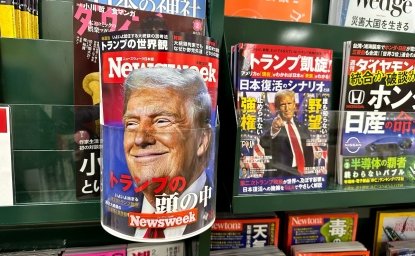Czar Speaker Is Vindicated on Overthrow Ruling
In my Dec. 18 column, “Senate Leader Reid’s Rule Recalls House Czars”, I recounted how a group of progressive Republicans and Democrats removed Speaker Joe Cannon, R-Ill., as chairman and a member of the Rules Committee in 1910 by claiming a constitutional privilege to change House rules from the floor. When Cannon ruled the motion was not privileged under the Constitution, his decision was appealed and overturned.
The bipartisan coalition proceeded to adopt its rule change, which converted the Rules Committee from a speaker-appointed committee of five members to a 10-member committee elected by the House. Cannon, gracious in defeat, immediately announced he would entertain a motion that the speakership be vacated, and a Democratic member obliged. But even the progressive Republicans returned to the fold and helped defeat what would have been Cannon’s ultimate humiliation.
That column may have left the impression that the precedent set during that revolt against the “Czar Speaker” means that the House can still change its rules at any time as a matter of constitutional privilege. Nothing could be further from the truth. Although Republicans lost control of Congress in the 1910 elections, Cannon saw to it, before relinquishing his gavel at the end of that Congress, that the precedent set by his eviction from the Rules Committee was reversed.
On Dec. 5, 1910, a third session of the 61st Congress convened. A month later, on Jan. 9, 1911, Rep. Charles Fuller, R-Ill., rose in the House to offer an amendment to House rules which he claimed was “a question of constitutional privilege.” His rule change would reverse the order of a rule that gave motions to discharge committees priority over motions to suspend the rules.
Rep. James Mann of Illinois, who would become Republican leader in the next Congress, raised a point of order that the motion was not privileged. Cannon, still in the chair as speaker, apparently relished revisiting the question because he entertained a lengthy debate on the point of order before issuing his ruling.
Rep. Oscar Underwood, D-Ala., who would become Mann’s counterpart as his party’s leader in the next Congress, said he had never argued that Cannon’s 1910 ruling was wrong, but simply that it had to be overturned because the American people were in favor of divorcing Cannon from the Rules Committee, and a House majority could only secure a vote on that proposition by leading “a revolution.”
Mann responded that “a revolution sometimes changes a form of government” and asked Underwood whether he was for “following up the revolution or is returning to the original form of government” — whether he is “now for the new republic or the old kingdom.” Underwood said further revolution wasn’t necessary in the present case because the will of the House was not being blocked. In response to another question from Mann, Underwood agreed that the rule change being proposed by Fuller “is not in order.”
In short, even the Democrats recognized that allowing the precedent to stand was a dangerous proposition, especially because they would control the House in just two months. When Cannon sustained the point of order that Fuller’s proposed rule change was not privileged, Fuller did not appeal the ruling out of “great respect for the speaker” — a clear clue the whole exercise was a setup. A Democratic member, however, did appeal, and Cannon’s decision was overwhelmingly upheld, 235-53.
Today, the House is also guided by a 1977 precedent that “an appeal from the ruling of the Chair is not in order if the effect of the appeal, if sustained, would be to change a rule of the House.” The Senate, on the other hand, has no such prohibition, which is why, on Nov. 21, Majority Leader Harry Reid was able to make a point of order that, on his successful appeal, lowered the threshold for ending debates on most presidential nominations from three-fifths to a majority vote — a rule-changing precedent.
Thomas Jefferson, in his manual of parliamentary practice for the Senate, asserts that “the only weapons by which the minority can defend themselves” against abuses of power by the majority “are the forms and rules of proceeding” and “a strict adherence” to them. The House recognized in 1911 how dangerous the precedent could become if rules could be changed willy-nilly from the floor at the whim of any member. The Senate will eventually have a similar day of reckoning over what it has done. The sooner that occurs, the better.
Author

Former Director, the Congress Project, Wilson Center; Former Staff Director, House Rules Committee
Explore More
Browse Insights & Analysis
Bimonthly Column on Procedural Politics From "Roll Call"

The Transatlantic Partnership: A Status Report from the Global Europe Program

